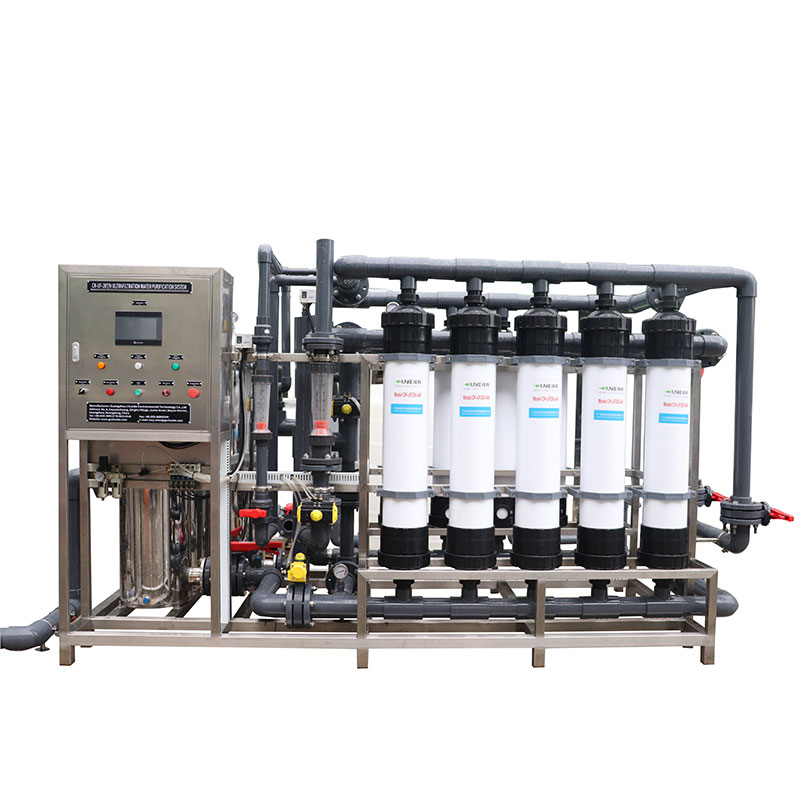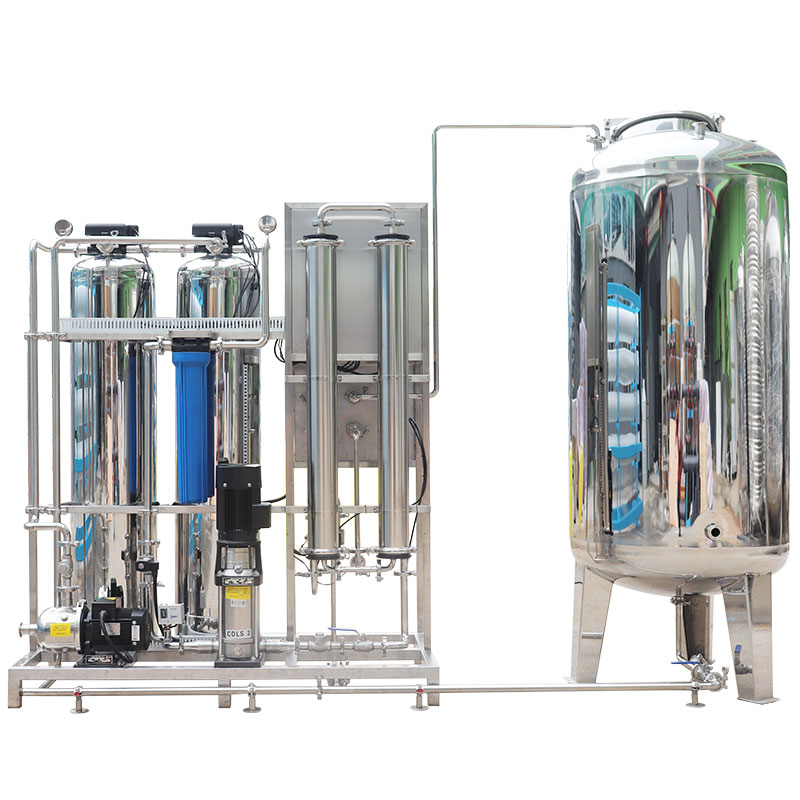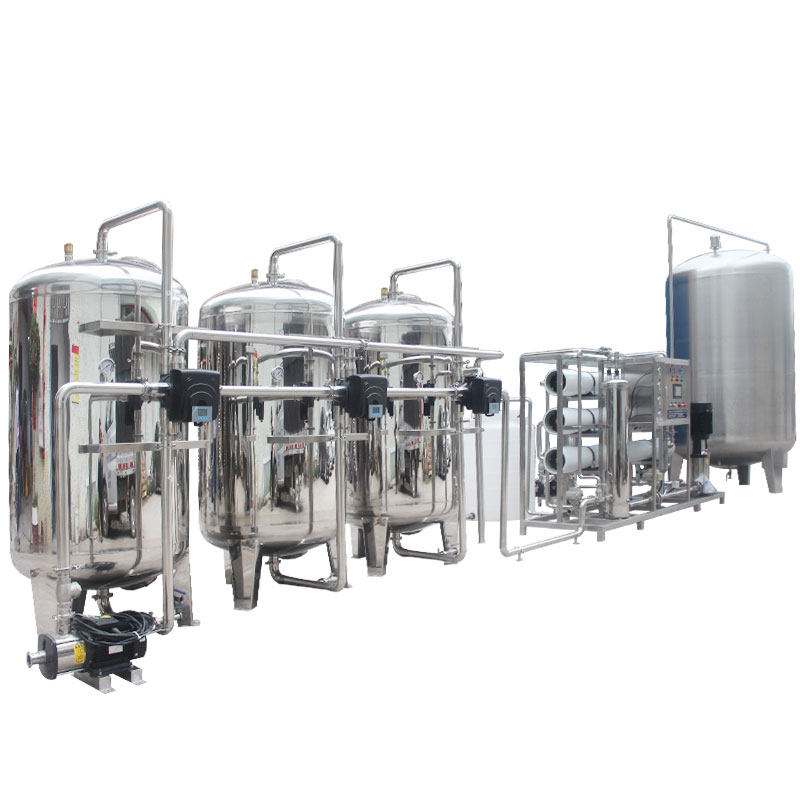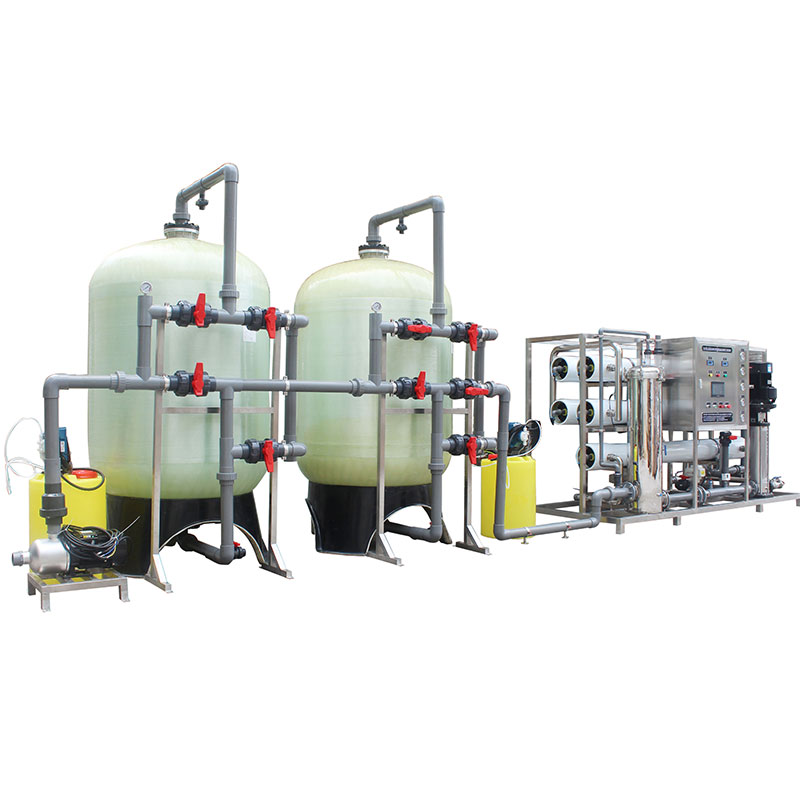Which household water filter is the best?
As people's demand for healthy drinking water increases, the market for household water filters is booming. Various types of household water filters emerge in an endless stream, including activated carbon water filters, reverse osmosis water filters, ultraviolet water filters, and ultrafiltration water filters.
So, which household water filter is the best choice? This article will analyze in detail the types, principles, advantages and disadvantages, and scope of application of water filters to provide a reference for consumers to choose a suitable household water filter.

What types of household water filters are there?
There are 4 main types of household water filters:
1. Activated carbon water filter,
2. Reverse osmosis water filter (RO),
3. Ultraviolet water filter,
4. Ultrafiltration water filter (UF).
1. Activated carbon water filter:
● Principle: Use the porous structure and strong adsorption properties of activated carbon to remove odors, residual chlorine, some organic matter and heavy metals in water.
● Advantages: low cost, simple operation, convenient maintenance, and can effectively improve the taste of water.
● Disadvantages: The removal effect of soluble salts, microorganisms and bacteria is limited, and the filter element needs to be replaced regularly.
● Scope of application: Suitable for families with heavy chlorine taste in tap water and need to improve the taste of water quality.
2. Reverse osmosis water filter (RO):
● Principle: Water molecules are passed through a semipermeable membrane under high pressure to intercept soluble salts, organic matter, bacteria and viruses in the water and provide pure water.
● Advantages: High filtration accuracy, can effectively remove most pollutants in the water, including soluble salts, organic matter and microorganisms, and produce water with excellent water quality.
● Disadvantages: High initial investment, requires electric drive, produces wastewater, and the filter element needs to be replaced frequently.
● Scope of application: Suitable for families with poor water quality and high water quality requirements, such as families in areas with serious industrial pollution.
3. Ultraviolet water filter:
● Principle: Use the high energy of ultraviolet rays to kill bacteria, viruses and other microorganisms in the water.
● Advantages: Good sterilization effect, does not change the chemical properties of water, and has no secondary pollution.
● Disadvantages: Only effective for microorganisms, ineffective for soluble pollutants and organic matter, and the UV lamp needs to be replaced regularly.
● Scope of application: Suitable for families with high levels of bacteria and viruses in the water source, often used in conjunction with other water filtration technologies.
4. Ultrafiltration water filter (UF):
● Principle: Use the microporous structure of the ultrafiltration membrane to intercept suspended matter, colloids, bacteria and some organic matter in the water.
● Advantages: High filtration accuracy, no need for electric drive, no wastewater, and low maintenance cost.
● Disadvantages: Limited effect on the removal of soluble salts and small molecular organic matter, and the filter element needs to be cleaned and replaced regularly.
● Scope of application: Suitable for families with relatively good water quality but need further purification.

What is the basis for choosing a household water filter?
1. Water quality:
● Tap water quality: For areas with good water quality, if the tap water quality meets national standards, you only need to remove odors and improve taste, and you can choose an activated carbon water filter.
● Areas with poor water quality: If there is industrial pollution or the water hardness is high, it is recommended to choose a reverse osmosis water filter or ultrafiltration water filter to ensure the removal of harmful substances.
2. Family needs:
● Drinking water demand: Choose a water filter of appropriate capacity according to the family population and drinking water demand. If a large-capacity water purifier is required, you can choose a reverse osmosis or ultrafiltration water filter.
● Health needs: For families with infants or the elderly, special attention should be paid to water quality safety. It is recommended to choose a reverse osmosis water filter with high filtration accuracy.
3. Economic budget:
● Initial investment: The initial investment of the reverse osmosis water filter is high, but the filtration effect is good; the initial investment of the activated carbon water filter is low, which is suitable for families with limited budgets.
● Maintenance cost: The filter element replacement and maintenance costs of different types of water filters are different, and the long-term use cost needs to be considered comprehensively.
4. Installation and ease of use:
● Installation requirements: The reverse osmosis water filter needs to be powered by electricity, and the installation location of the power supply needs to be considered; other types of water filters are relatively simple to install.
● Ease of use: Consider the convenience of filter replacement and cleaning, and choose a water filter that is easy to operate.

Market evaluation of household water filters
1. Brand and reputation
● Choose a water filter with a well-known brand and good reputation to ensure product quality and after-sales service. Consumers can learn about the performance and reliability of water filters of different brands by checking user reviews and expert reviews.
2. Product certification
● Choose a water filter certified by an authoritative organization, such as NSF certification, water quality safety certification, etc., to ensure that the product meets relevant standards and safety requirements.
3. After-sales service
● High-quality after-sales service can ensure that problems with the water filter are solved in a timely manner during use, such as filter replacement, fault repair, etc.
Which household water filter is the best?
1. Midea reverse osmosis water filter:
● Features: Five-stage filtration system, which can efficiently remove soluble pollutants, bacteria and viruses in water; smart display screen, real-time monitoring of water quality and filter status.
● Advantages: high filtration accuracy, excellent water quality, and easy operation.
● Disadvantages: High initial investment, requires electricity to drive, and produces wastewater.
2. Qinyuan ultrafiltration water filter:
● Features: Using ultrafiltration membrane technology, it can effectively remove suspended matter, colloids and bacteria in water; no electricity is required, energy-saving and environmentally friendly.
● Advantages: High filtration accuracy, no wastewater generation, low maintenance cost.
● Disadvantages: Limited removal effect on soluble salts and small molecular organic matter.
3. CHUNKE activated carbon water filter:
● Features: Using activated carbon filter element, it can effectively remove odor, residual chlorine and some organic matter in water; simple design, easy installation, is the choice of most users.
● Advantages: Low initial investment, easy operation and maintenance.
● Disadvantages: The filter element needs to be replaced regularly.
4. Philips UV water filter:
● Features: Using ultraviolet sterilization technology, it can effectively kill bacteria, viruses and other microorganisms in water; used in conjunction with other filtration technologies to provide multiple purification.
● Advantages: Good sterilization effect, no secondary pollution.
● Disadvantages: Ineffective against dissolved pollutants and organic matter, UV lamps need to be replaced regularly.

Conclusion of choosing the best home water filter
Choosing the best home water filter requires comprehensive consideration of factors such as water quality, family needs, economic budget and ease of use. From the perspective of water filtration effect and comprehensive performance, reverse osmosis water filter is widely regarded as one of the most effective home water filters due to its efficient filtration capacity and high-quality water quality. For families with poor water quality or high water quality requirements, reverse osmosis water filter is undoubtedly the best choice.
However, other types of water filters, such as ultrafiltration water filter, activated carbon water filter and ultraviolet water filter, also have their own unique advantages, suitable for different water quality conditions and family needs. When choosing a water filter, consumers should consider the advantages and disadvantages of various types of water filters according to their actual situation and choose the most suitable product for themselves.
I hope this article can provide valuable reference for consumers to choose a suitable home water filter and help everyone enjoy healthy and safe drinking water.




